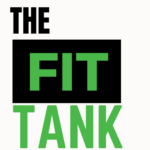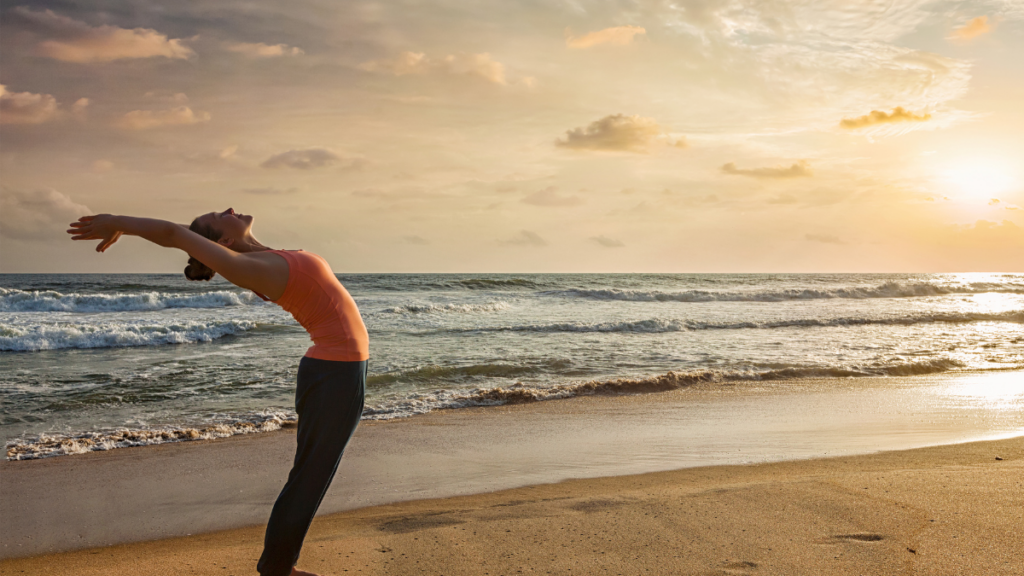5 Steps to Make Your Summer Workout Healthier Than Ever
Want to get the most out of your summer workout, but can’t stand the heat? You’re not the only one. Summer can make it difficult to stay on a fitness routine, especially if you live in an area with sweltering heat. But heat isn’t the only culprit of summer; poor air quality, sunburn and humidity are also problems that can make hot weather workouts a pain.
But no worries, you can exercise in the summer, learn to combat the heat and even find extra motivation to stay in the groove the entire season. Knowing how to adjust your workout to the heat helps lessen the risk associated with summer exercising. In that spirit, here are five safe and healthy steps to help you stay in shape this summer.
5 Steps to a Safe and Healthy Summer Workout
Acclimate – Our bodies are very adaptable to stress when we train it the right way. Just as you can train your muscles to endure long workouts and lift heavy weights, you can train your body to adjust to working out in higher temperatures. But you have to do it right to avoid health risks.
Eating more fruits and vegetables helps you adapt to hot weather. Fresh produce contains the vitamins and minerals needed to help your body maintain healthy electrolyte and hydration levels. For example, bananas contain plenty of potassium to prevent muscle cramps while celery contains potassium and sodium to help maintain hydration. Most fruits and vegetables contain natural water packed with phyto-nutrients that help your body adjust and recover.
To further help your body adapt to the heat, train in the same space or slowly adjust to a new one. If you work out indoors with air conditioning for 30 minutes, you cannot expect to do the same outside in the heat. Help your body acclimate by working out for only 10-15 minutes at a time in the heat and work your way back up to your indoor time.
If you have always done your workouts outdoors and the temperature rises, you might have to readjust. Reduce your workout time and slowly increase by one or two minutes each day until you reach your normal workout time. And don’t forget to pay attention to your body signals like body temperature and heart rate to avoid overheating.
Exercise in the Morning – Exercising in the morning has many benefits such as lessening the risk of heat stroke and increased fat loss. We all know the morning is the best time of the day to beat the heat, so take advantage of it. Getting up earlier for only three days leads to a habit that becomes easier and doing this for 22 days makes it automatic for most people.
And the best part of morning workouts; increased fat loss. Studies show that exercising before breakfast not only burns more fat, but keeps metabolism higher throughout the rest of the day. (1) If you have trouble getting out of bed, just remember that once your workout is complete, you’ve already done something good for yourself and endorphins will kick in and help you feel great the rest of the day.
Stay Hydrated – This is a good hot weather practice whether you are training or not. Drinking enough water throughout the day will help your body temperature stay at a safe level in heat and allow you to sweat without becoming dehydrated.
Step up your hydration levels by adding a few ingredients to your water for a refreshing and natural electrolyte replacement. Simply add slices of lemon, oranges, or cucumbers and a pinch of sea salt and pinch of sugar to a pitcher of water. Keep this in your fridge and fill your sports bottle with it when you work out.
Exercise Indoors – While many prefer to exercise outdoors, some people live in cities where it’s simply not safe to exercise outside. High humidity, poor air quality and extreme heat can make any workout more of a hazard than helpful. If this sounds like your city, consider training indoors, at least during a heat wave. If working out indoors sounds boring, then use a fitness tracker and app.
Fitness trackers have extra benefits because they can help you keep track of your heart rate and other vitals, which is crucial for any kind of training in heat. The right fitness app, like Yes.Fit, allows you to run virtual races keeping you motivated and accountable. You can exercise at your pace. All miles logged will go towards your race. When you finish the race, your rewards will automatically ship. When it comes to summer exercise, anything that helps you stay safe while getting healthy is worth a try.
Plan, plan, plan – Planning your summer workout ahead of time can help you decide when to work out and where. Checking the weather each week can help you decide if it’s safe to exercise outdoors. Planning your diet to coincide with the weather will help your body easily adapt to the heat and humidity. And as we all know, there are only so many minutes in a day so having a plan helps you stick with your workout and reach your goals more easily.
A fitness tracker can be your friend when planning your workouts. There are multiple fitness trackers available, and most of them for a reasonable price. To make the most of your tracker, install a fitness app with features to keep your workout interesting; even when indoors.
For example, Yes.Fit, is an app that allows you to keep track of your workouts each day, even if you switch from indoors to outdoors and back. The beauty of a fitness app is that it’s flexible. If you miss your morning outdoor workout, no worries; simply exercise later in the day. And you can still keep it interesting indoors where you don’t have to worry about heat stroke.
Make your summer healthier than ever by sticking with smart and simple steps that can help you reach your goals.
Whether it’s weight loss, better fitness or both, pay attention to your body and plan your workout. Summer heat may be a bummer, but it doesn’t have to interfere with your healthy lifestyle, so go for it and have fun!
References:
Gonzalez, J. T., Veasey, R. C., Rumbold, P. L., & Stevenson, E. J. (2013, August). Breakfast and exercise contingently affect postprandial metabolism and energy balance in physically active males. Retrieved July 23, 2019, from https://www.ncbi.nlm.nih.gov/pubmed/23340006

